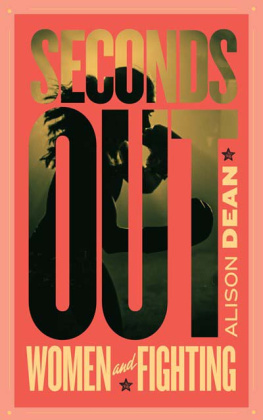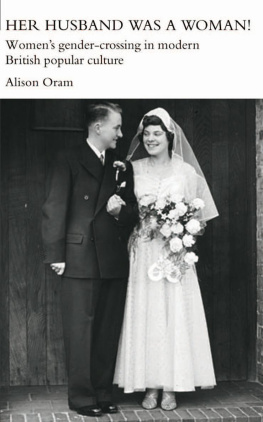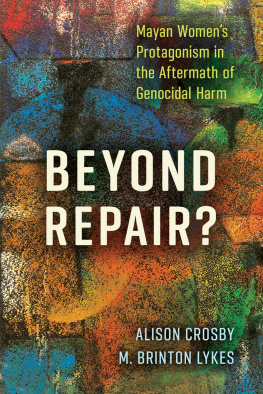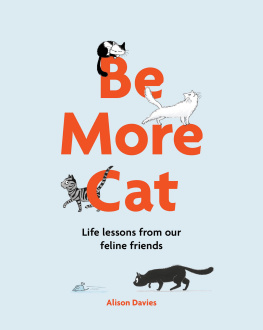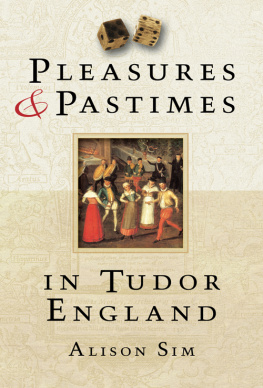Alison Dean - Seconds Out: Women and Fighting
Here you can read online Alison Dean - Seconds Out: Women and Fighting full text of the book (entire story) in english for free. Download pdf and epub, get meaning, cover and reviews about this ebook. year: 2021, publisher: Coach House Books, genre: Home and family. Description of the work, (preface) as well as reviews are available. Best literature library LitArk.com created for fans of good reading and offers a wide selection of genres:
Romance novel
Science fiction
Adventure
Detective
Science
History
Home and family
Prose
Art
Politics
Computer
Non-fiction
Religion
Business
Children
Humor
Choose a favorite category and find really read worthwhile books. Enjoy immersion in the world of imagination, feel the emotions of the characters or learn something new for yourself, make an fascinating discovery.
- Book:Seconds Out: Women and Fighting
- Author:
- Publisher:Coach House Books
- Genre:
- Year:2021
- Rating:4 / 5
- Favourites:Add to favourites
- Your mark:
- 80
- 1
- 2
- 3
- 4
- 5
Seconds Out: Women and Fighting: summary, description and annotation
We offer to read an annotation, description, summary or preface (depends on what the author of the book "Seconds Out: Women and Fighting" wrote himself). If you haven't found the necessary information about the book — write in the comments, we will try to find it.
Seconds Out: Women and Fighting — read online for free the complete book (whole text) full work
Below is the text of the book, divided by pages. System saving the place of the last page read, allows you to conveniently read the book "Seconds Out: Women and Fighting" online for free, without having to search again every time where you left off. Put a bookmark, and you can go to the page where you finished reading at any time.
Font size:
Interval:
Bookmark:

YOUVE CHANGED
Every now and then, I hear some reference to Kintsugi, the Japanese art of repairing broken pottery. In Kintsugi, the cracks are mended using a lacquer often made of gold. The object goes from whole object to broken thing, and then back to a solid whole. Through that breakage and repair, it takes on a new life; it becomes something beautiful in a different way when pieced back together with precious metal.
Kintsugi reminds me of the idea of worship through use the way a favourite pair of shoes has worn itself to the shape of my feet, or the familiar pattern in which my notebooks become tattered and ragged from living inside my unruly purse. Ive nuzzled and clutched my favourite heavy bag more affectionately than I do most flesh-and-blood friends. When I close my eyes, I can conjure the texture of its torn seams, taped patches, and misshapen stuffing. I think I absorbed some of this attitude from my best friend, Lara, who has always had a fondness for a random hole or snag in an otherwise perfect piece of cloth. Its one of my favourite things about her. Shes much more loving toward flaws than I am.
The same principle, worship through use, applies to the body. This includes the mental, emotional, and physical. I think on many levels the idea of strengthening and gaining new and ultimately greater value through breakage is true. In Kintsugi, the gold fortifies the cracks in a way that is stronger than the original ceramic. And, after all, thats also how you build muscle, or strengthen your shins for kicking. Thousands of small tears and microfractures ultimately make for stronger tissue and bones. But on another level, a break is a break. For better and worse, it signals a change and a turn, a loss of uninterrupted wholeness, or an end of innocence, from which one version of you just doesnt come back.
I have been learning about breakage, slowly. It has been one of my companions these past few years. As this time in my life has shown, once something breaks, its not just the thing in name that ends. In divorce, as in becoming a fighter, there was who I was, and theres now who I am going to be. I am becoming retroactively acquainted with who I used to be, in that life, but now the suture is also part of the identity I will carry with me forever. Fighting remakes me. I am told by others that I am the one who changed in my marriage, while I had thought for sure it was both of us. No matter. I have changed. Whats left now is a beautiful, broken thing I fight every day to fill in with gold.

When a round ends in a match, the fighters support team is allowed to run in, set down a stool, and surround the fighter. They use this short reprieve to coach, give water, press down bumps, patch up cuts, and ice the back or chest whatever the fighter needs in order to go on. This team is called seconds. I had always thought seconds referred to a hurried unit of time. Actually, seconds are people. This team is integral. They support the competitor up until and throughout their fight. But when the interim between rounds times out, the team must collect their things and step back out, leaving the fighter in the space without them. Seconds out! the official calls, signalling this moment when, no matter how dedicated the fighters team, they have to leave the ring and the fighter has to go forward, taking the tools and help theyve been given, and do the rest on their own.
I have spent no small amount of time studying and interrogating fight culture, poking around in its dark corners. I question and complicate, but not out of a desire to cut it down. This is an act of gratitude. Like anything I love, I want to see it clearly. I want to keep my eyes open, so that I may know it for what it is both the good and the bad. Ultimately, fighting has taught me that I am still learning my own strength and my own resilience. I havent hit my limit yet. My hope is that others will find some version of the same. Although not everyone can take up athletic pursuits, there are other ways these lessons apply. Its also possible to press these sports and practices into use, if desired, to make them fit you, rather than trying to contort yourself to fit an image of what others think they, or you, ought to be.
Boundaries are hard to set and harder to enforce. Change is painful. Fighting is difficult, and its messy. Fighters train to be perfect because perfection is impossible.
The thing about fighting like life, I suppose is that in the end it is not a team sport. You bring your training and the support of your team with you, and your seconds are there to step in when they can. But no matter how amazing your corner or supportive your cheering section, when you have to fight, you climb into that ring alone. Each fight changes you permanently, and can break you, but you can also come out the other end stronger, and more beautiful.
Chapter Two: Histories and Futures
This chapter is deeply indebted to the work of L.A. Jennings, particularly Shes a Knockout: A History of Women in Fighting Sports (Washington: Rowman & Littlefield, 2014), and Wendy L. Rouses Her Own Hero: The Origins of the Womens Self-Defense Movement (New York: NYU Press, 2017).
Quoted Sources
Erdman, Corey. Yosh Wagoner Helps Heal Her People through Boxing. Vice, Feb ruary 9, 2017. https://www.vice.com/en/article/kbxee3/yosh-wagoner-helps-heal-her-people-through-boxing
Gerrity, Diana. Miss Superfist, Atlantic Monthly225 (March 1970): 9192.
Grand, Sarah. The New Aspect of the Woman Question. The North AmericanReview158.448 (March 1894): 270276.
NBC Sportsworld. Women Who Fight. February 23, 1985. https://youtu.be/-mU9S-8dyUg
Thrasher, Christopher. Disappearance: How Shifting Gendered Boundaries Motivated the Removal of Eighteenth Century Boxing Champion Elizabeth Wilkinson from Historical Memory. Past Imperfect18 (2012): 5375.
van Ingen, Cathy. Seeing What Frames Our Seeing: Seeking Histories on Early Black Female Boxers.Journal of Sport History 40, Issue 1 (Spring 2013): 102.
Watts, Mrs. Roger (Emily). The Fine Art of Jujutsu: With 141 Action Photographs by G.W. Beldam. London: William Heinemann, 1906.
WYNC News. A History of Womens Boxing. January 29, 2012. https://www.wnyc.org/story/183864-history-womens-boxing
Other Referenced Sources
Byron, Peg. A Former Lightweight Boxing Champ Said Sunday She UPIArchives, April 26, 1987. https://upi.com/4947475
Fox, Sue T.L. Lady Tyger Had a Dream A Female Boxer from the 70s and 80s. Women Boxing Archive Network, May 15, 1998. https://www.womenboxing.com/tyger.htm
Jennings, L.A. The Women Boxers Who Fought for Their Right to Be Pro. Vice, June 13, 2016. https://www.vice.com/en/article/aebv9b/the-women-boxers-who-fought-for-their-right-to-be-pro
Kurchak, Sarah. Edith Garrud and the Jiu Jitsu of the Suffragette Movement. Vice, October 7, 2015. https://www.vice.com/en/article/pg5j48/edith-garrudand-the-jiu-jitsu-of-the-suffragette-movement
The Olympic Museum. Womens Wrestling Super 8. January 14, 2015. https://www.olympic.org/museum/explore/programming/in-archive/womens-wrestling-super-8
Rossen, Jake. Lady Ali: How Jackie Tonawanda Changed Womens Boxing. MentalFloss, October 2, 2017. https://www.mentalfloss.com/article/504460/lady-ali-how-jackie-tonawanda-changed-womens-boxing
Ruz, Camila, and Justin Parkinson. Suffrajitsu: How the Suffragettes Fought Back Using Martial Arts. BBC News Magazine, October 5, 2015. https://www.bbc.com/news/magazine-34425615
Font size:
Interval:
Bookmark:
Similar books «Seconds Out: Women and Fighting»
Look at similar books to Seconds Out: Women and Fighting. We have selected literature similar in name and meaning in the hope of providing readers with more options to find new, interesting, not yet read works.
Discussion, reviews of the book Seconds Out: Women and Fighting and just readers' own opinions. Leave your comments, write what you think about the work, its meaning or the main characters. Specify what exactly you liked and what you didn't like, and why you think so.

